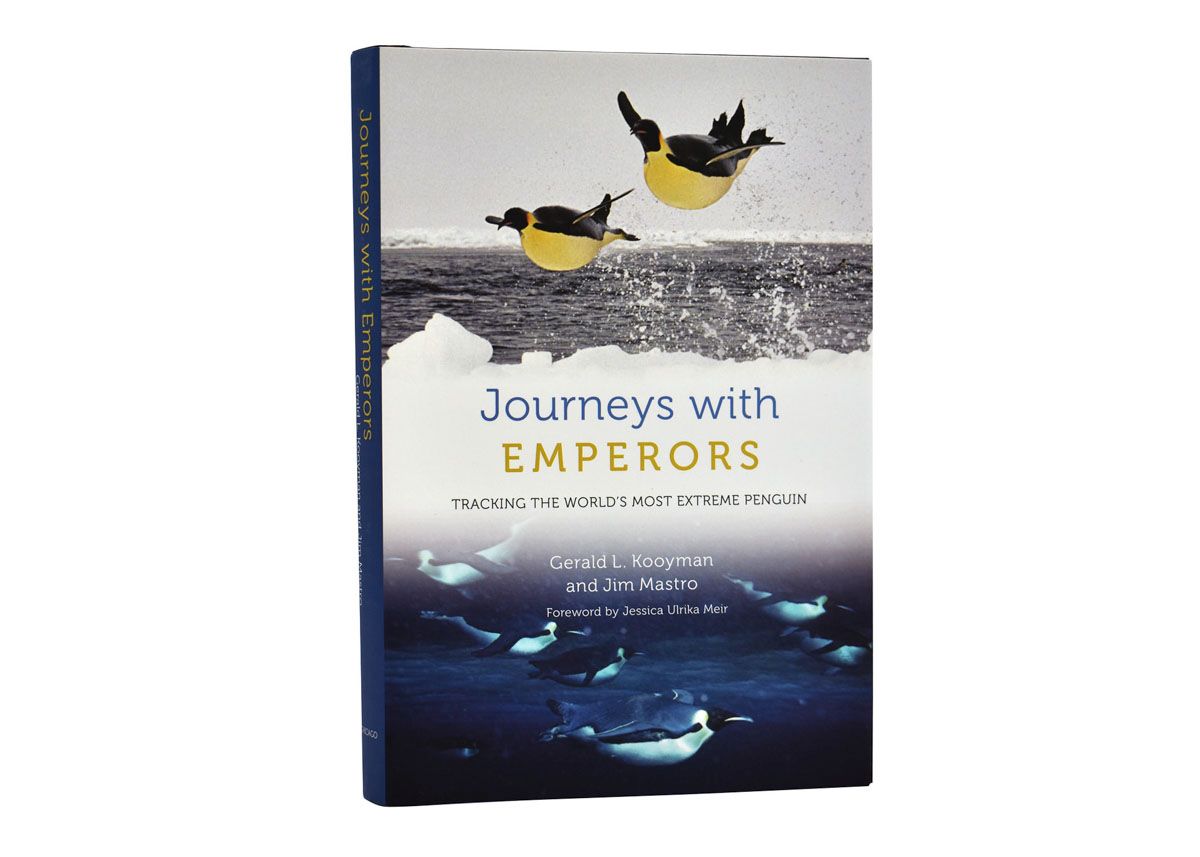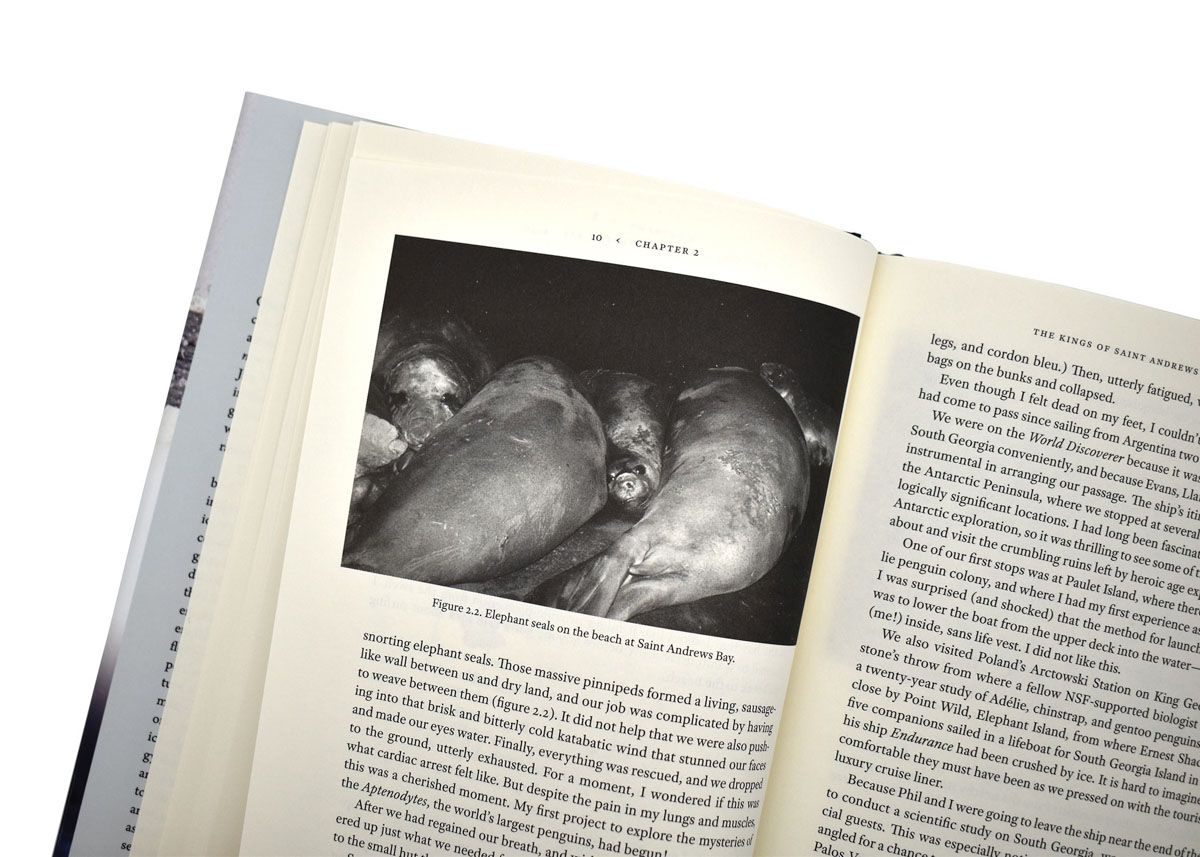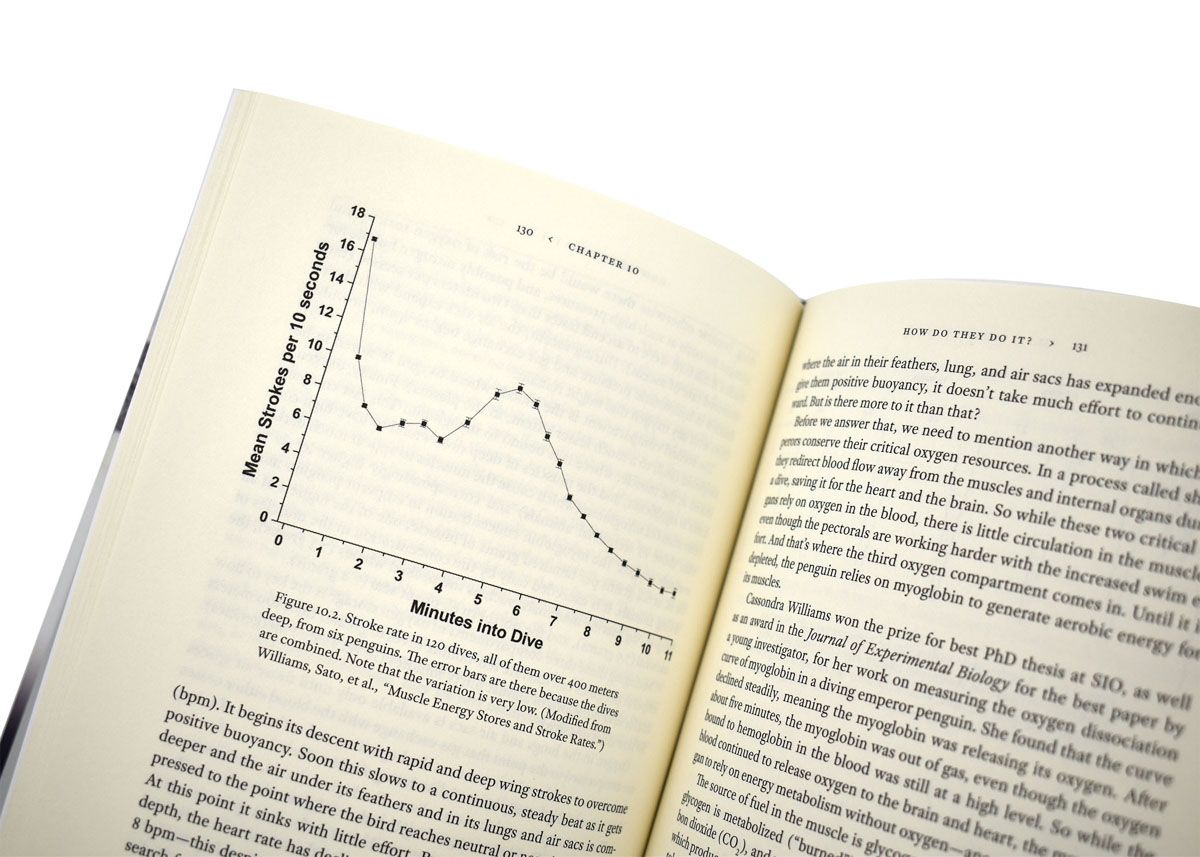Journeys with Emperors
Tracking the World’s Most Extreme Penguin
With stunning photographs from the ice edge, a firsthand account of a researcher’s time in Antarctica and of the perilous journeys of the world’s largest penguin species: the iconic emperor.
Nearly all emperor penguin colonies are extremely remote; of the sixty-six known, fewer than thirty have been visited by humans, and even fewer have been the subject of successful research programs. One of the largest known emperor penguin colonies is found on a narrow band of sea ice attached to the Antarctic continent. In Journeys with Emperors, Gerald L. Kooyman and Jim Mastro take us to this far-flung colony in the Ross Sea, showing us how scientists gained access to it, and what they learned while living among the penguins as they raised their chicks.
The primary mission was to record the birds’ activities at sea, and the data revealed important aspects of emperor penguin behavior and physiology: for instance, that in the course of hunting for food, some of the penguins dive to depths of greater than five hundred meters (a third of a mile, which is deeper than for any other diving bird). The researchers also discovered that, crucially, most of the emperor’s life is actually spent at sea, with fledged chicks and adults making separate, perilous journeys through icy water. When chick nurturing is complete, the fledglings abandon the colony in large groups, heading north to the Southern Ocean. The adults leave at the same time, traveling one thousand kilometers eastward across the Ross Sea to a sea-ice sanctuary for molting. During this journey, they must gain enough weight to survive the month-long molt, when every feather is replaced and the birds cannot enter the water to feed. After the molt, many if not most return to the colony to breed once again. For the males, this means another fast—this time for 120 days as they incubate their eggs. The nearness of the colony to the ice edge spared the penguins the long, energy-draining march for which other colonies are well-known. It also allowed researchers to observe the penguins’ departures to and arrivals from their foraging journeys, as well as their dangerous interactions with leopard seals and killer whales.
Featuring original color photographs and complemented with online videos, Journeys with Emperors is both an eye-opening overview of the emperor penguin’s life and a thrilling tale of scientific discovery in one of the most remote, harsh, and beautiful places on Earth.
The primary mission was to record the birds’ activities at sea, and the data revealed important aspects of emperor penguin behavior and physiology: for instance, that in the course of hunting for food, some of the penguins dive to depths of greater than five hundred meters (a third of a mile, which is deeper than for any other diving bird). The researchers also discovered that, crucially, most of the emperor’s life is actually spent at sea, with fledged chicks and adults making separate, perilous journeys through icy water. When chick nurturing is complete, the fledglings abandon the colony in large groups, heading north to the Southern Ocean. The adults leave at the same time, traveling one thousand kilometers eastward across the Ross Sea to a sea-ice sanctuary for molting. During this journey, they must gain enough weight to survive the month-long molt, when every feather is replaced and the birds cannot enter the water to feed. After the molt, many if not most return to the colony to breed once again. For the males, this means another fast—this time for 120 days as they incubate their eggs. The nearness of the colony to the ice edge spared the penguins the long, energy-draining march for which other colonies are well-known. It also allowed researchers to observe the penguins’ departures to and arrivals from their foraging journeys, as well as their dangerous interactions with leopard seals and killer whales.
Featuring original color photographs and complemented with online videos, Journeys with Emperors is both an eye-opening overview of the emperor penguin’s life and a thrilling tale of scientific discovery in one of the most remote, harsh, and beautiful places on Earth.
See video examples accompanying the book.
256 pages | 25 color plates, 46 halftones | 6 x 9 | © 2023
Biological Sciences: Behavioral Biology, Natural History, Physiology, Biomechanics, and Morphology
Reviews
Table of Contents
Foreword
Preface
Chapter 1 A Meeting with Emperor Penguins
Chapter 2 The Kings of Saint Andrews Bay
Chapter 3 The Seven Colonies of the Ross Sea
Chapter 4 The Emperors of Cape Washington
Chapter 5 Kings and Emperors in One Year
Chapter 6 The Commuter Journey
Chapter 7 The Fledging Journey
Chapter 8 The Pre-molt Journey
Chapter 9 The Post-molt Journey
Chapter 10 How Do They Do It?
Chapter 11 Predator as Prey
Chapter 12 Climate, Conservation, and Consumption
Acknowledgments
Annotated Bibliography
Index
Preface
Chapter 1 A Meeting with Emperor Penguins
Chapter 2 The Kings of Saint Andrews Bay
Chapter 3 The Seven Colonies of the Ross Sea
Chapter 4 The Emperors of Cape Washington
Chapter 5 Kings and Emperors in One Year
Chapter 6 The Commuter Journey
Chapter 7 The Fledging Journey
Chapter 8 The Pre-molt Journey
Chapter 9 The Post-molt Journey
Chapter 10 How Do They Do It?
Chapter 11 Predator as Prey
Chapter 12 Climate, Conservation, and Consumption
Acknowledgments
Annotated Bibliography
Index




